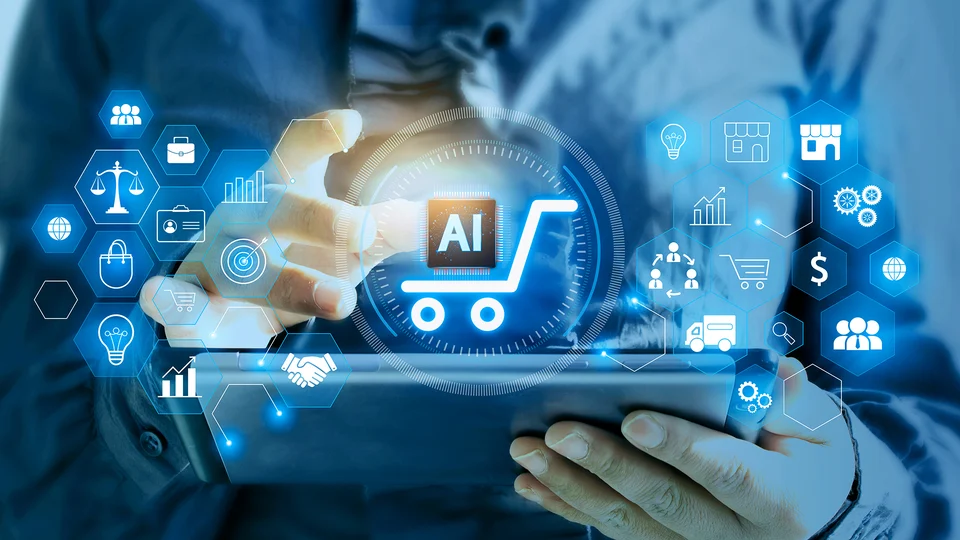Self-hosted AI models are becoming increasingly popular among eCommerce businesses, offering greater control, customization, and data privacy. Here are some key use cases:
- Personalized Product Recommendations Self-hosted AI models can analyze vast amounts of customer data, including browsing history, past purchases, wishlist items, and even on-site behavior like click patterns and time spent on product pages. By processing this information, the AI can create highly personalized product recommendations for each customer. This goes beyond simple “customers who bought X also bought Y” suggestions. The AI can identify subtle patterns and preferences, potentially recommending products that the customer might not have discovered otherwise. This personalization can significantly increase conversion rates, average order value, and customer satisfaction.
- Inventory Management AI-driven inventory management systems can revolutionize how eCommerce businesses handle stock. These models can analyze historical sales data, seasonal trends, external factors (like upcoming holidays or events), and even social media buzz to predict future demand for products. By accurately forecasting demand, businesses can optimize their inventory levels, reducing the costs associated with overstocking while minimizing the risk of stockouts. The AI can also suggest when to reorder products, in what quantities, and even recommend new products to add to the inventory based on emerging trends.
- Dynamic Pricing Self-hosted AI models for dynamic pricing can process a multitude of factors in real-time to determine the optimal price for products. These factors may include competitor pricing, time of day, day of the week, current demand, inventory levels, and even individual customer willingness to pay. The AI can make subtle price adjustments to maximize revenue without alienating customers. For instance, it might slightly increase prices for in-demand items during peak shopping hours, or offer personalized discounts to hesitant customers to encourage purchases.
- Customer Service Chatbots AI-powered chatbots can handle a wide range of customer interactions, from answering frequently asked questions to guiding customers through the purchasing process. These chatbots can be trained on the business’s specific products, policies, and common customer issues, providing accurate and consistent information. They can also learn from each interaction, continually improving their responses. Advanced chatbots can even detect customer sentiment, escalating complex or sensitive issues to human agents when necessary. This not only reduces the workload on human customer service staff but also provides 24/7 support to customers.
- Fraud Detection Self-hosted AI models for fraud detection can analyze numerous data points in real-time to identify potentially fraudulent transactions. These may include unusual purchasing patterns, mismatches between shipping and billing addresses, IP address locations, and the velocity of transactions from a single account. The AI can assign risk scores to transactions, flagging high-risk ones for review or automatically declining them. Over time, the model can learn from confirmed fraud cases, continually improving its accuracy and adapting to new fraud tactics.
- Image Recognition and Visual Search AI-powered image recognition can enable customers to search for products by uploading photos or even using their device’s camera in real-time. The AI can identify objects, styles, colors, and patterns in images, matching them to similar products in the store’s inventory. This technology can be particularly useful for fashion, home decor, and other visually-driven product categories. It can also be used to provide augmented reality experiences, allowing customers to virtually “try on” products or see how furniture would look in their homes.
- Sentiment Analysis Self-hosted AI models can perform in-depth sentiment analysis on customer reviews, social media mentions, and even customer service interactions. This goes beyond simple positive/negative classification, identifying specific aspects of products or services that customers praise or criticize. The AI can track sentiment trends over time, alerting the business to emerging issues or highlighting successful improvements. This information can guide product development, marketing strategies, and customer service improvements.
- Predictive Maintenance For eCommerce businesses with physical operations (like warehouses or distribution centers), AI models can analyze data from equipment sensors, usage patterns, and historical maintenance records to predict when machines are likely to fail. By forecasting maintenance needs, businesses can schedule repairs during off-peak hours, preventing unexpected breakdowns that could disrupt operations. This predictive approach can significantly reduce downtime, extend equipment lifespan, and optimize maintenance costs.
- Customer Segmentation AI-driven customer segmentation goes far beyond basic demographic groupings. These models can identify complex patterns in customer behavior, preferences, and value to create highly specific customer segments. For example, the AI might identify a segment of “high-value, fashion-forward customers who prefer eco-friendly brands and shop mainly on mobile devices during weekends.” This granular segmentation enables highly targeted marketing campaigns, personalized user experiences, and even product development tailored to specific customer groups.
- Supply Chain Optimization Self-hosted AI models can analyze vast amounts of data from various points in the supply chain to optimize operations. This includes predicting shipping delays based on historical data, weather forecasts, and current events; optimizing delivery routes based on real-time traffic data and order clustering; and even suggesting the most efficient warehouse layouts based on product associations and order patterns. The AI can also help in supplier selection and management by analyzing supplier performance data, market conditions, and risk factors. By optimizing the entire supply chain, eCommerce businesses can reduce costs, improve delivery times, and enhance overall customer satisfaction.
By leveraging self-hosted AI models, eCommerce businesses can gain a competitive edge, improve operational efficiency, and enhance customer experiences while maintaining control over their data and algorithms.










